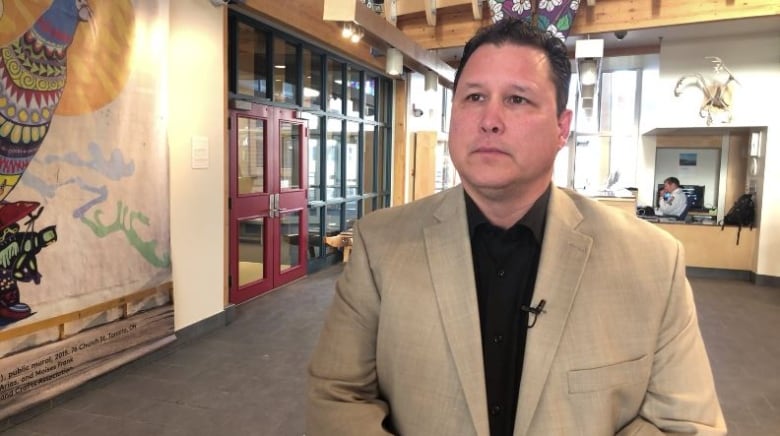Canadian eastern Arctic: Nunavut gov unveils carbon tax mitigation measures

The Nunavut government, in Canada’s eastern Arctic, plans to subsidize half of the costs its residents will bear as a result of the federal government’s carbon tax.
Finance minister George Hickes presented the plan Wednesday during a committee of the whole meeting, where the government asked for $3.6 million for the current fiscal year to roll the plan out by the time the carbon tax takes effect on July 1.
The territory didn’t develop its own climate pricing plan, so Nunavut will be subject to the federal government’s backstop tax — although Ottawa says it will return all carbon tax revenue it earns from Nunavut, back to the territorial government.
The carbon tax will increase prices on an array of petroleum products, including gasoline, home heating fuel and propane. The Qulliq Energy Corporation’s electricity-generating fuel will be exempt from the tax, as will airlines operating inside Nunavut.
To help ease the impact on Nunavummiut, the territorial government plans to subsidize half of the costs the carbon tax. The plan is officially called the “Nunavut carbon rebate.”
Using gasoline as an example, the carbon tax is expected to increase prices by about 5 cents per litre. The Nunavut government plans to subsidize half of that increase, so Nunavummiut will only see a 2.5 cents per litre increase at the pumps.
While pitching the plan to MLAs on Wednesday, Hickes said the government didn’t want to subsidize the full increase, in order to still stay within the spirit of the carbon tax.
“We want to encourage Nunavummiut to do what they can to reduce their emissions. So we’re not rebating the full amount,” Hickes told the Legislative Assembly.
“Instead, our government intends to use the carbon revenues we did not immediately give back through this rebate, to fund other important initiatives.”

Hickes said the plan is expected to cost the government $36 million from now until the end of fiscal 2024, at which time the government will begin rolling the subsidy back.
“In effect, Nunavummiut will face the same overall adjustment as other Canadians to the federal carbon tax, but over a period that is twice as long,” Hickes said, adding the impact will be felt over a span of 10 years.
The committee ultimately approved the $3.6 million request for funding, and the bill will likely pass third reading.
Where is the carbon tax revenue going?
With carbon tax revenues being returned to the Government of Nunavut, Hickes said the money will go toward the Nunavut Carbon rebate, and toward other initiatives not yet announced.
In addition to the rebate, the government is proposing changes to Nunavut’s Income Tax Act, to also help mitigate the cost of the carbon tax to Nunavummiut.
Hickes wouldn’t elaborate on what the government is planning to change in the Income Tax Act since the bill hasn’t been presented in the House. But the bill likely won’t go through committee of the whole until the Legislature’s fall sitting in October — just before the federal election.
Speaking with CBC News, Hickes also said the revenue from the carbon tax will also go to help ease the financial burden of the tax on the government.
“There are some increased costs to the government too. We highly subsidize power rates, we highly subsidize rents for low-income earners, so we want to make sure it’s not creating an unfair burden on the government either,” he said.
Related stories from around the North:
Canada: Carbon tax and energy policy: PMs from Canada’s central, eastern Arctic share conservative counterparts’ frustration with Ottawa, CBC News
Finland: The world could transition entirely to cheap, safe renewable energy before 2050: Finnish study, Yle News
Norway: Unfazed by youth climate protests, Norwegian gov expands Arctic drilling, The Independent Barents Observer
Russia: Warmest winter ever on the Northern Sea Route, The Independent Barents Observer
United States: Alaska’s largest city unveils climate plan calling for 80 percent emissions cut by 2050, Alaska Public Media



